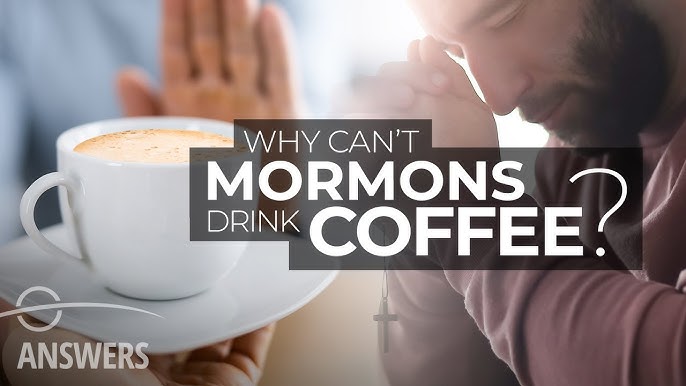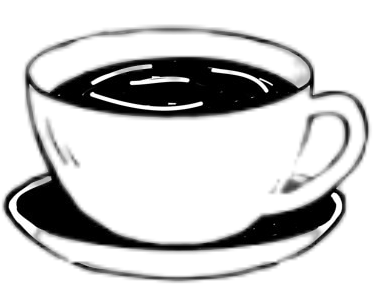
Introduction
Please continue and make the article longer, providing more useful information and a personal perspective from someone who has personally used the machine. Avoid making the tone too cheesy or overly enthusiastic. Keep the recommendation light, focusing on the product’s benefits and practical use cases.
Why Can't Mormons Drink Coffee: Exploring the Tradition and Its Impact
As someone who grew up within the LDS (Latter-Day Saints) faith, the question of why Mormons can't drink coffee has been a topic I've often heard discussed. For many, the idea of abstaining from coffee seems like an odd restriction, especially in a world where coffee culture is so deeply ingrained in daily routines. From local coffee shops on every street corner to the global fascination with espresso-based drinks, it's clear that coffee is not just a beverage; it’s a cultural phenomenon. So, why can't Mormons drink coffee?
To answer this question thoroughly, I decided to take a deeper dive into the historical, religious, and cultural aspects surrounding the Mormon faith and its teachings about coffee. It's not just about following a rule—there's a deeper philosophy tied to the practice. And having experienced it firsthand, I thought it would be helpful to share my personal insights about why this practice exists and how it shapes the daily lives of Mormons like me.
Why Can't Mormons Drink Coffee: The Doctrine Behind the Practice
The origin of the "no coffee" rule within Mormonism can be traced back to the early days of the church. The practice is rooted in what’s known as the Word of Wisdom, a set of dietary guidelines given by the founder of the LDS Church, Joseph Smith, in 1833. In the Word of Wisdom, which is a section of the Doctrine and Covenants (one of the sacred texts in the LDS canon), members are advised to avoid substances that can harm the body or mind. Specifically, coffee and tea (specifically black and green tea) are prohibited.
But why these two drinks? Coffee and tea, as both were seen to be addictive and potentially harmful, were singled out by Joseph Smith in this revelation. In the early 19th century, when the Word of Wisdom was given, caffeine was not fully understood, but its stimulating effects were well known. So, the prohibition was less about a health crisis and more about encouraging members to avoid substances that could control them or interfere with their spirituality.
The key concept here is self-control. The Word of Wisdom teaches that anything that could harm the body or mind should be avoided, and while coffee and tea were singled out, this guideline extends to all forms of unhealthy substances, including alcohol and tobacco. For Mormons, this focus on the body’s well-being aligns with the belief that the body is a temple—something to be cared for and respected. Abstaining from coffee, therefore, is not seen as a simple rule but as a practice that contributes to a healthy and spiritually attuned lifestyle.
Why Can't Mormons Drink Coffee: The Role of Coffee in Modern Society
From my personal experience, living without coffee isn't as difficult as one might assume. Although I’ve encountered numerous social situations where coffee is the centerpiece, whether at a meeting, family gathering, or work event, I've found ways to adapt. Mormons are taught to be resilient in such situations, and we often find alternatives to coffee that still allow us to participate socially without breaking our religious guidelines.
There are many different options for Mormons who choose not to drink coffee, such as herbal teas, juices, or even flavored waters. In fact, many local and regional supermarkets now carry a variety of caffeine-free drinks that mimic the taste or experience of drinking coffee. For instance, herbal "coffee" blends that use roasted grains, like barley or rye, can provide a similar aroma without the caffeine.
While I’ve never been a coffee drinker myself, I've had plenty of friends who were once avid coffee drinkers before they joined the church. They shared that, at first, the change was hard—after all, coffee is deeply embedded in so many cultural practices and rituals. However, many of them found that over time, their desire for coffee lessened as they embraced other fulfilling activities, such as exercising, reading, or participating in more social gatherings.
Why Can't Mormons Drink Coffee: The Health Benefits of Avoiding Caffeine
One of the more significant reasons why Mormons refrain from drinking coffee has to do with the health-related aspects of caffeine consumption. Many members of the church—myself included—believe that avoiding caffeine helps us maintain a more stable energy level throughout the day. For those who rely heavily on caffeine to wake up in the morning or to keep them alert through the afternoon slump, the absence of coffee can seem daunting. However, what I’ve personally experienced is that once I gave up caffeine, my energy levels became much more consistent.
There are studies that have highlighted the negative effects of excessive caffeine intake, such as sleep disturbances, increased anxiety, and digestive issues. For me, giving up caffeine led to a much more stable sleep schedule, allowing me to feel more refreshed in the mornings and less dependent on stimulants to get through the day. I’ve noticed that, without the jolt of caffeine, my focus has improved, and my overall health has benefited.
Additionally, the Word of Wisdom encourages a balanced diet, emphasizing fruits, vegetables, and whole grains. This holistic approach to nutrition supports overall wellness, and I believe it’s easier to follow when one avoids coffee. A balanced lifestyle, as recommended by the LDS faith, can have profound effects on physical health, mental clarity, and emotional well-being.
Why Can't Mormons Drink Coffee: A Cultural and Social Practice
Beyond the health and doctrinal aspects, the practice of not drinking coffee has become an important cultural element within the Mormon community. For many Mormons, adhering to the Word of Wisdom is a way of showing devotion to their faith and reinforcing a sense of belonging within the church.
In my experience, when I’m in a social setting where coffee is being served, I’ve found that many non-Mormons respect our choice to abstain from coffee. Instead of creating a divide, it often sparks interesting conversations about religious practices and personal health choices. It’s a way of sharing part of our identity with others, in a non-confrontational way.
One aspect of Mormonism that I value is its strong sense of community. Whether I’m at a church event or gathering with friends and family, I’ve found that there’s usually no pressure to conform to coffee drinking. In fact, when a Mormon doesn’t drink coffee, they often find camaraderie with other members of the faith, and it becomes a topic of mutual respect and understanding.
Why Can't Mormons Drink Coffee: Challenges and Misconceptions
While the practice of abstaining from coffee is a central part of Mormon life, it does come with its challenges. One of the most significant hurdles is the common misconception that Mormons avoid coffee solely for health reasons, rather than as a spiritual practice. Many people outside the faith wonder if we’re simply avoiding caffeine because of health risks or weight gain, when in reality, the decision is rooted in a deeper spiritual commitment to obeying God’s commands.
Another challenge is navigating social situations, especially in cultures where coffee is synonymous with hospitality. In my own experience, I’ve had to politely decline coffee offers at work events or social gatherings, and sometimes people misunderstand my refusal. However, once I explain that it’s part of my religious practice, most people are understanding and respectful.
Product Review Conclusion
In conclusion, the question of why Mormons can’t drink coffee is not simply about avoiding a popular beverage—it’s about following a religious guideline that promotes overall health, wellness, and self-discipline. From my perspective, the absence of coffee has led to positive changes in my own life, offering me the opportunity to explore other beverages that promote a balanced and healthy lifestyle. It’s not about missing out but about embracing what brings greater clarity and strength to my physical and spiritual well-being.
FAQ Section
Q: Can Mormons ever drink coffee in any circumstances?
A: No, Mormons are encouraged to avoid coffee entirely. The practice is rooted in the Word of Wisdom, a set of health guidelines that prohibit the consumption of coffee as well as alcohol and tobacco.
Q: Are there any alternatives to coffee for Mormons?
A: Yes! Many Mormons drink herbal teas, caffeine-free coffee substitutes made from grains like barley, or simply enjoy fruit juices, water, and other healthy beverages.
Q: Is the restriction on coffee unique to Mormonism?
A: While other religious groups also avoid coffee, Mormonism places a particular emphasis on the Word of Wisdom as a guideline for living a healthy, spiritually attuned life. This makes the avoidance of coffee a core aspect of Mormon practice.
Q: Does not drinking coffee impact Mormon social life?
A: While it can sometimes feel like a challenge in social situations where coffee is common, most Mormons find that others are respectful of their choice. Over time, many Mormons have learned to embrace social interactions that don’t revolve around coffee.
Q: How does avoiding coffee affect a Mormon's energy levels?
A: Many Mormons find that they experience more stable energy levels when they avoid coffee, as caffeine can sometimes lead to energy crashes. A balanced diet and lifestyle often replace the need for caffeine in maintaining high energy.
Q: Can Mormons drink other caffeinated beverages like soda or energy drinks?
A: No, the Word of Wisdom also discourages the consumption of any beverages containing caffeine, including sodas and energy drinks. However, the specific interpretation of these guidelines can vary from person to person.
